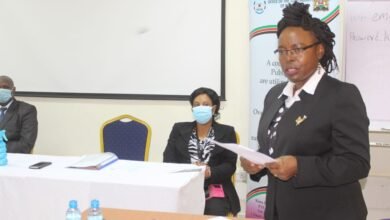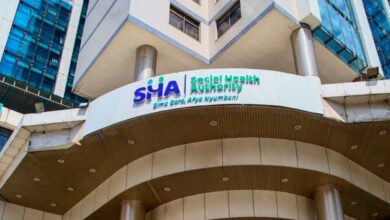
The AstraZeneca-Oxford vaccine, which was manufactured by the Serum Institute of India and made available to the COVAX facility thanks to an advance purchase agreement between Gavi, the Vaccine Alliance and SII, were procured and transported by UNICEF’s Supply Division in Copenhagen.
The first consignment of a million and twenty-five thousand doses which arrived in Kenya on Tuesday night is part of an initial allocation to Kenya of 3.56 million doses.
United Nations International Children’s Emergency Fund (UNICEF) is providing 1,025,000 syringes and 10,250 safety boxes to Kenya, via a global stockpile funded and supported by Gavi.
However, Kenya already has enough in-country stocks of syringes and safety boxes for the first phase of vaccinations.
“With the arrival of these vaccines, UNICEF and partners are honouring the promise of the COVAX facility to ensure people from less wealthy countries are not left behind in the global roll out of life-saving vaccines,” UNICEF Representative to Kenya Maniza Zaman said.
“UNICEF is proud to be part of a partnership supporting the Government of Kenya in this vital work. I would also like to thank the countries that have donated to COVAX. Each step on this journey brings us further along the path to recovery for the millions of Kenyan children and families affected by COVID-19.”
UNICEF, the World Health Organisation (WHO) and partners are also supporting the Government’s communication campaign to raise awareness of the vaccination campaign while increasing trust in the COVID-19 vaccine.
Support is being provided to counter myths and misconceptions about COVID vaccines and to encourage people to get the vaccine as it becomes available to them.
“The World Health Organisation is honoured to be part of this unprecedented global vaccination campaign – the largest such response in human history,” WHO Representative to Kenya Dr. Rudi Eggers said.
“In the coming weeks, frontline health workers in Kenya will start to receive the vaccines, protecting them as they treat the victims of COVID, and provide essential health services. I can assure health workers and the Kenyan public that these vaccines are safe and effective. With this vaccination we will get much closer to end this pandemic. However, while these vaccines are being rolled out, please let us continue the public health measures in places, such as the masks, the social distancing and avoiding congested gatherings and settings.” he added
COVID-19 on specific demographics
After Ivory Coast Ghana and Nigeria, Kenya became the third country on the continent to receive the coronavirus jabs, with Nigeria waiting in the line, which ordered 4 million doses.
In the East African Community (EAC) Kenya is the first to receive the jabs.
Senior government officials including the Cabinet Secretary for Health Mutahi Kagwe were at the airport to receive the shipment, marking a historic moment for the fight against the deadly coronavirus that has left the economy in a dire situation.
“This is a historic day for Kenya, marking an important milestone in our fight against COVID-19,” Cabinet Secretary for Health Hon Mutahi Kagwe said.
“This has been made possible by the leadership of His Excellency President Uhuru Kenyatta and the hard work of the Ministry of Health. I would like to thank UNICEF, WHO and GAVI for their support in procuring and transporting these life-saving vaccines and the Kenyan people for their cooperation over the past 11.5 months.”
The vaccine will be administered in two phases for the first takers. Health care workers are expected to be the first to receive the jab as the government plans to ship in more doses.
It is being administered under emergency use authorisation meaning research on all products is still ongoing before the entire study is concluded for the vaccine to be availed to everyone, including the pregnant women.
“More work is still being done to ensure that the vaccine can be tested in pregnant women and paediatric age group. We want a vaccine that can be given to all of us and that will be the best.”
Professor Omu Anzala from the University of Nairobi.
Professor Anzala said the vaccine is fairly safe apart from side effects like fever and a few people could develop reaction which will not be severe.
The vaccine, the professor says can either protect you from the infection or from getting the disease.
“If the vaccine protects you from infection it means you will not be infected at all. But if it protects you from the disease then it means you may get infected but you don’t develop the disease.”
The current vaccines which are being used only offer protection from the disease but one is likely to be re-infected once it has been administered but the vaccine will protect one from developing the disease.
COVAX is co-led by Gavi, the Vaccine Alliance, WHO and the Coalition for Epidemic Preparedness Innovations (CEPI), working in partnership with UNICEF as well as the World Bank, civil society organisations, manufacturers, and others. COVAX is part of the Access to COVID-19 Tools (ACT).





